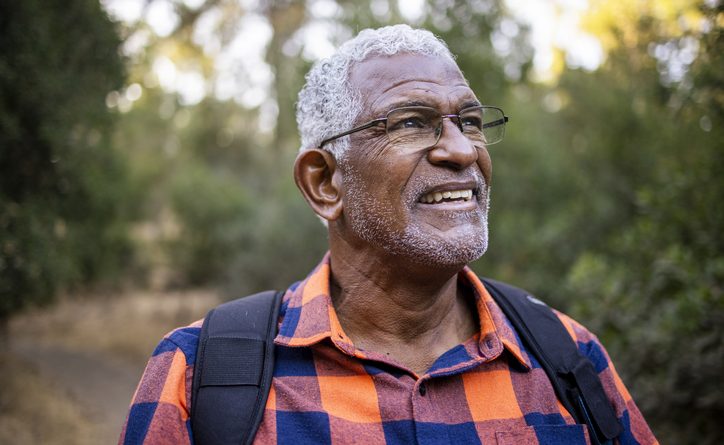Improve your cognitive fitness
Boosting brainpower can help you focus and stave off dementia
By Betsy Butler, Ohio Public Employees Retirement System
Oct. 19, 2023 – Crisp morning air, changing sunlight and turning leaves mean that fall is here. Just in time for my favorite season, I have a magnificent new cardigan sweater to wear.
Using 10 luscious, tweedy colors of yarn blended from wool, alpaca and viscose, I knitted my way through six different, complicated Fair Isle stranded colorwork panels on the body, then added a sequence of stripes on sleeves, ribbing and bands. It’s one of the most beautiful pieces I’ve made, but this epic knit tested my patience for months. Finishing it brought me a tremendous sense of accomplishment – and relief.
Knitting is a fantastic hobby. Besides ending up with a finished product that showcases your skills, it’s meditative, tactile and relaxing. It challenges you to select appropriate materials, learn stitches, understand instructions and perform a sequence of actions and follow directions. Plus, it exercises your brain.
Cognitive fitness pursuits such as knitting are important at any age. They improve your learning capabilities; engage your problem-solving and reasoning skills; test your memory; challenge you to understand, remember and perform steps; make you more open to new ideas and perspectives; and boost your creativity. They help us focus and sustain our attention, block out distractions, concentrate on important information and increase our productivity and efficiency. What’s more, it’s possible that they can help delay losses of memory, thinking, judgment, language and behavior, all symptoms of dementia.
If you’re interested in maintaining your brain health as you age, find activities that not only interest you but offer the right amount of difficulty and challenge. Too much challenge is stressful, while too little offers fewer rewards. Here are some suggestions:
- Play bingo, or work on a jigsaw or crossword puzzle.
- Learn a new hobby like photography, model-building or quilting.
- Challenge your existing mindset by listening to different viewpoints, reading different kinds of books, visiting new places and engaging in experiences outside your ken.
- Exercise: Being active, ideally for 20-30 minutes each day, helps maintain good blood flow to the brain, reducing the risk of heart attack, stroke and diabetes. It also delivers oxygen to the brain, facilitating information processing, learning and memory functions. Increased energy and strength, improved balance and mood, and heightened problem-solving ability also result.
- Eat well: Try a heart-healthy diet featuring whole grains, fruits, vegetables, fish, nuts, lean meats and low-fat dairy products. Also, drink plenty of water, control portion sizes, and limit solid fats, sugar and salt.
- Get a good night’s sleep. Sticking to a schedule, establishing a relaxing bedtime routine and even taking a daytime nap help to improve reaction time and split-second decision-making.
- Come up with memory aids to help remember information through associations and patterns and enhance recall.
- Practice mindfulness (deliberately paying attention to the present moment) and meditation (training the mind to focus on a specific object or thought).
- Work on a single task without distractions for 25-minute intervals, followed by short breaks for rejuvenation.
- Engage in brainstorming – listing as many different ideas as possible – to explore different perspectives and generate creative ideas.
- Incorporate novelty and variety into daily routines: Take different routes to your destination, or try a new experience outside your comfort zone to encourage your adaptability and flexibility.
- Try speed-reading: Training your eyes to skim text quickly can enhance reading speed and improve your ability to process information rapidly.
- Practice mental calculations by figuring tips or solving math problems in your head, rather than with a calculator. Take a reaction time test.
Consider engaging in these activities with a companion. Being with other people stimulates your ability to learn new names, recall details from conversations and compose what you’d like to share about your own experiences.
Betsy Butler
Betsy Butler is the Ohio Public Employees Retirement System’s knowledge and issues strategist, researching information on pensions, retirement and health care. Betsy came to OPERS in 2009 after working as a special collections librarian for two OPERS employers: the Ohio History Connection and Miami University.
